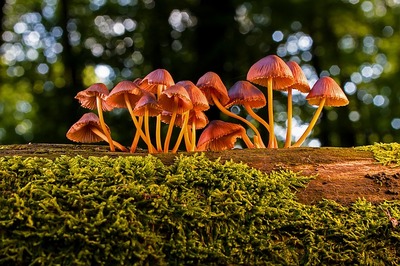Researchers Say People with Clinical Depression Could be Helped by Ingredient in Magic Mushrooms
Wednesday, October 9th, 2024 -- 10:00 AM

(Anna Marie Yannay, Wisconsin Public Radio) Researchers say people with clinical depression could be helped by a treatment involving psilocybin, the psychoactive ingredient in magic mushrooms.
According to Anna Marie Yannay with Wisconsin Public Radio, Wisconsin scientists are among those conducting dozens of clinical trials worldwide on the use of the drug in treating depression. They say the evidence shows that, in combination with therapy, it shows great promise.
“It works,” said psychiatrist Charles Raison, a professor of human ecology and psychiatry at the University of Wisconsin-Madison. “How far (psychedelics) get into the culture, how far they get into the clinical space? That’s a mystery.” Depression is a leading cause of disability worldwide. And for some, available treatments don’t work.
“There’s a huge need,” Raison said. “The treatments we have help many people, but they definitely don’t help everybody. And as the years have passed, we’ve come to see that they really help a minority of patients get as well as they should be.”
Raison and collaborators recently assessed how many people could be eligible for the potential psilocybin treatment. They estimated that of nearly 15 million people in the U.S. with clinical depression, about 6 million could be prescribed the treatment, if it were to be approved.
The researchers published their findings last month in the journal Psychedelics. Psilocybin is a naturally occurring compound found in some species of mushrooms. When ingested, it can cause hallucinations in hours-long “trips.”
The drug is illegal federally, but some research labs are able to study it. The potential treatment involves medical preparation, a therapist-supervised psilocybin “dosing day” and counseling post-trip to help the patient integrate their experience.
UW-Madison conducts clinical trials with psilocybin and other psychedelics to assess their safety and efficacy in mental health treatments at its Transdisciplinary Center for Research in Psychoactive Substances.
Feel free to contact us with questions and/or comments.




